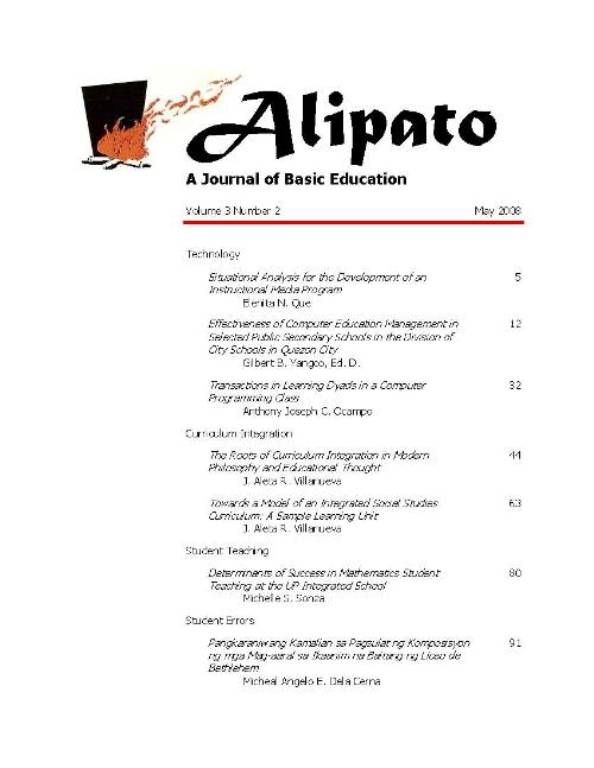Transactions in Learning Dyads in a Computer Programming Class
Abstract
Two learning dyads were observed and interviewed as they went about trying to solve a programming problem supplied by their teacher. The two dyads were differentiated based on their programming ability – one dyad had equally high performing members while the other dyad had equally low performing members. Differences were noted between the two dyads regarding control and conflict resolution. One member of the low performing dyad was found to monopolize control over their computer. The same member also evaluated the suggestions made by the other member without empirically testing the suggestion. In the high performing dyad, both members were observed to have equal control over their computer. The same dyad was also observed to empirically test suggestions made by either member. Results tend to indicate that dyad composition may be related to performance. A quantitative study is recommended to verify this claim.


